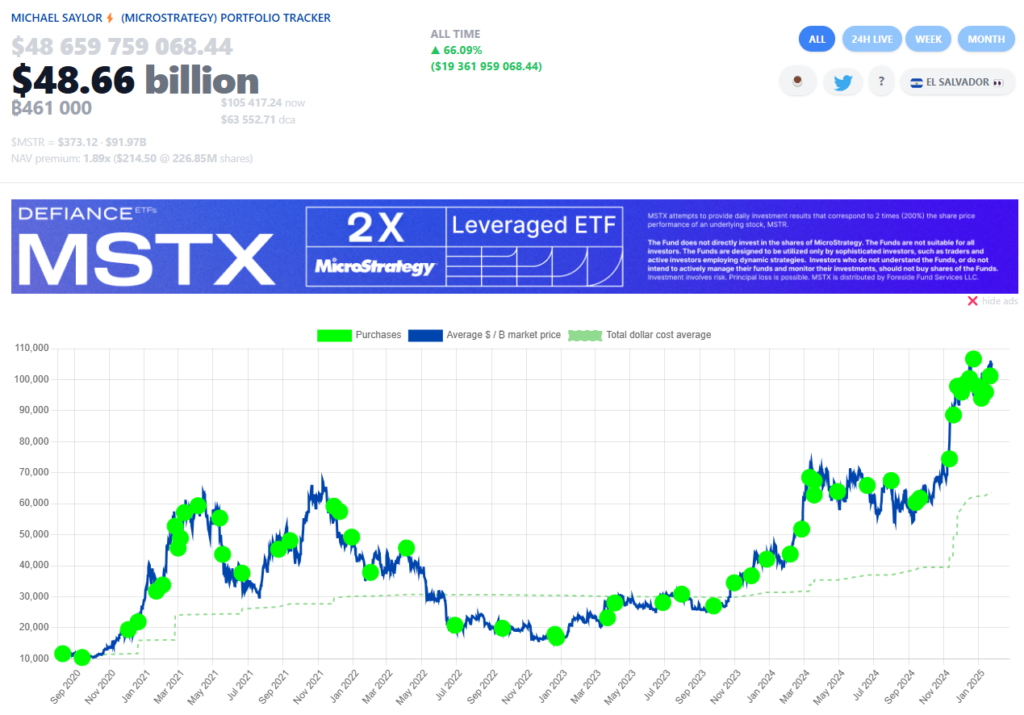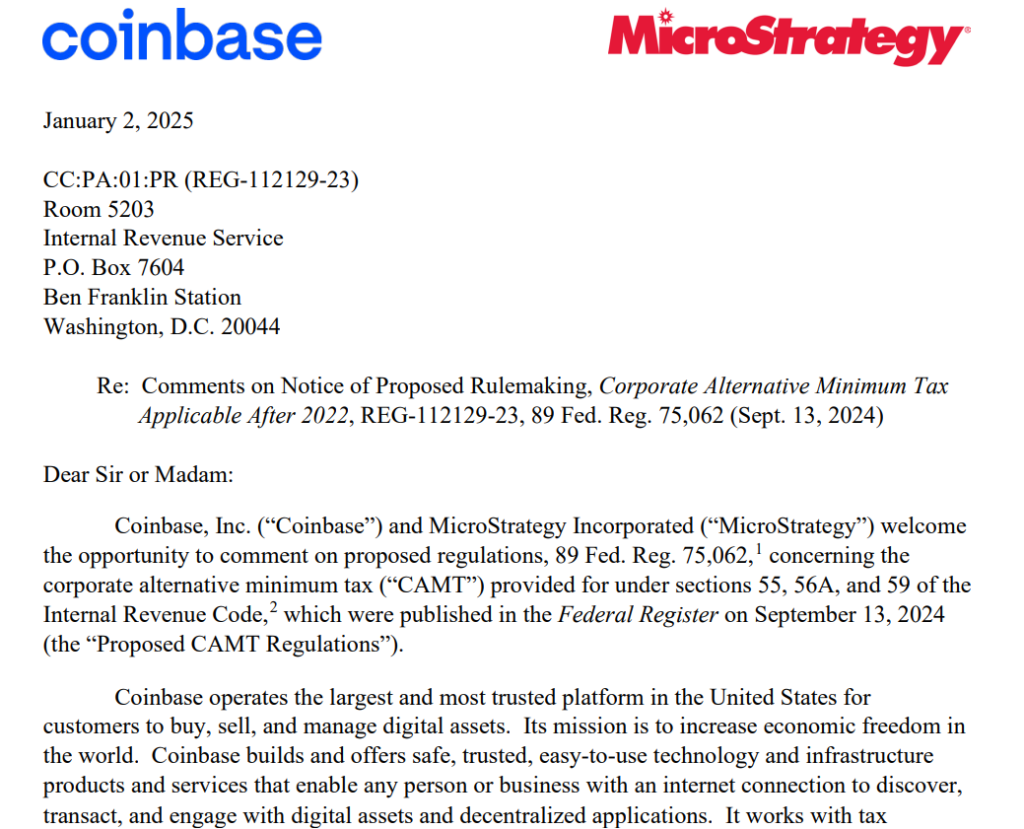MicroStrategy May Face Taxes on Unrealized Bitcoin Gains Despite No Sales
Michael Saylor’s MicroStrategy, known as the largest corporate holder of Bitcoin (BTC), could be required to pay federal income taxes on unrealized gains due to provisions in the Inflation Reduction Act of 2022.
This act introduced a “corporate alternative minimum tax” (CAMT), applying a 15% tax rate based on an adjusted measure of earnings, according to a Wall Street Journal report dated Jan. 24. Under this regulation, companies like MicroStrategy would fall within its purview.
However, there is speculation that the U.S. Internal Revenue Service (IRS) might create exemptions for Bitcoin under a potentially more crypto-friendly administration, similar to policies seen during President Donald Trump’s tenure.
MicroStrategy’s Massive Bitcoin Holdings
As of Jan. 13, MicroStrategy’s Bitcoin holdings have exceeded 450,000 BTC, valued at over $48 billion. This follows a recent purchase of $243 million in Bitcoin. The company’s unrealized gains on its holdings currently stand at more than $19.3 billion, according to their portfolio tracker.

This development comes just six months after MicroStrategy agreed to a $40 million settlement in a tax fraud lawsuit. The case, filed by the District of Columbia’s attorney general in August 2022, alleged that Saylor had avoided paying income taxes in the district for at least a decade while residing there.
CAMT Opposition from MicroStrategy and Coinbase
MicroStrategy and cryptocurrency exchange Coinbase have both voiced opposition to the CAMT regulation. The companies have urged the U.S. Treasury and IRS to revise the rules to exclude unrealized cryptocurrency gains from the adjusted financial statement income (AFSI) calculation.
In a joint letter to lawmakers on Jan. 3, the firms warned that the CAMT could have unintended consequences for corporations holding significant crypto assets:
“The unforeseen combination of CAMT and a newly promulgated accounting standard are creating unjust and unintended tax consequences… CAMT imposes a 15% minimum tax on the AFSI of any corporation whose AFSI averages at least $1 billion in the prior three-year period.”
The letter explained that the regulation could force companies to pay taxes on unrealized crypto gains, a scenario that could negatively affect U.S.-based corporations holding large amounts of digital assets.

Growing Scrutiny of U.S. Crypto Tax Laws
Interest in U.S. crypto tax regulations surged in June 2024 when the IRS issued new guidelines for third-party tax reporting on cryptocurrency transactions. Starting in 2025, centralized crypto exchanges (CEXs) and brokers will be required to report digital asset transactions, including sales and exchanges, to the IRS.
This move is aimed at ensuring accurate tax filings for crypto transactions and addressing noncompliance. However, industry experts warn that the regulations could drive crypto investors toward decentralized platforms, complicating efforts to track taxable activity.
Anndy Lian, an intergovernmental blockchain expert, noted the paradox of the situation:
“This decision could push crypto investors to decentralized platforms in a paradoxical situation, making tax revenue harder to track.”
In response to these measures, the Blockchain Association filed a lawsuit against the IRS in December 2024, challenging the inclusion of decentralized exchanges under the term “broker” and arguing that the extended data collection requirements are unconstitutional.
As regulatory scrutiny increases, the crypto industry continues to push back, raising concerns about the broader implications for innovation and adoption in the U.S. market.















Leave a comment